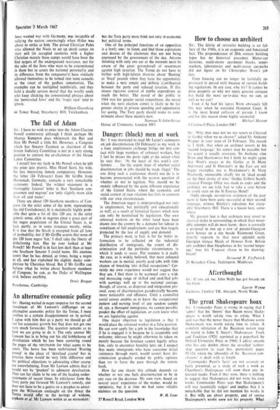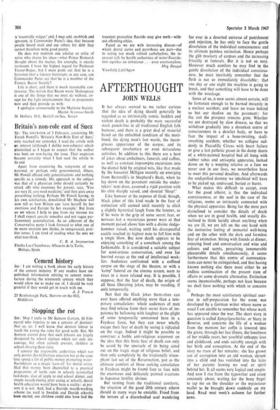The great Shakespeare hoax
Sir: Commander Pares is wrong in saying that I 'admit' that his 'theory' that Bacon wrote Shake- speare is worth taking time to refute. What I said was that the newer theory that Marlowe wrote Shakespeare was worth taking time to refute. A complete refutation of the Baconian notion may be found in John S. Smart's Shakespeare: Truth and Tradition (1928; reprinted as a paperback by Oxford University Press in 1966). I advise anyone who has any doubts about the so-called 'author- ship' question to read this, particularly pages 92-124. where the 'absurdity of the Baconian con- clusions' is dealt with at length.
Commander Pares's 'facts' are not accurate or fairly presented, as a study of such a work as Chambers's Shakespeare will soon show any in- terested reader. Even if they were, there is nothing to suggest that Shakespeare did not write his own works. Commander Pares says that Shakespeare's will was 'essentially vulgar' and implies that it is remarkable that he did not mention his works in it. But wills are about property, and of course Shakespeare's works were not his property. What
is 'essentially vulgar,' and, I may add, snobbish and ignorant, is Commander Pares's idea that because people hoard malt and sue others for debt they cannot therefore write good poetry.
He does not mention one scholar or critic of value who shares his ideas—what Prince Bismarck thought about the matter, for example, is clearly irrelevant. I have the highest regard for Professor Trevor-Roper, but I must point out that he is a historian (not a literary historian); in any case, can Commander Pares say that he is a member of the Francis Bacon Society?
Life is short, and there is much reasonable con- troversy. The notion that Bacon wrote Shakespeare is one of the things that we must do without, ex- cept for the light entertainment that its proponents now and then provide us with.



































 Previous page
Previous page